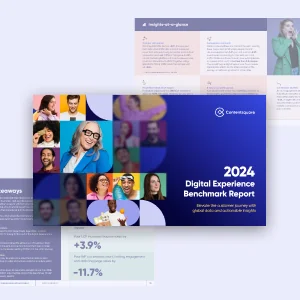
Uncover trends for crucial digital KPIs
Access the 2024 Digital Experience Benchmarks Report and Interactive Explorer.

Listen the article in audio format:
By multiplying the available points of contact between brands and customers, digital technology has considerably complicated the customer journey.
The recent pandemic has further reinforced this trend by converting “brick and mortar” buyers into e-buyers in the space of a few short weeks.
In this guide, you’ll discover why analyzing the digital customer journey is fundamental to business success, plus how to optimize it with illustrated examples of inspiring customer journeys.
Uncover trends for crucial digital KPIs Access the 2024 Digital Experience Benchmarks Report and Interactive Explorer.
The digital customer journey is the path followed by an internet user – from the awareness stage right through to the purchase stage.
Essentially, it covers every single interaction that takes place online between the customer and the brand throughout the buying journey.
In some cases, the digital customer journey can extend beyond the act of purchase or subscription; to customer loyalty. For example, the brand may offer personalized post-sale offers or adapted content to improve the buyer’s knowledge and experience of their newly purchased product.
Initially, it was mostly the banking and insurance sectors that studied the customer journey in detail, due to the long and personal relationships they built with their customers over time.
But today, the digital customer journey is a hot topic amongst any brand that understands the breadth and importance of digital.
Over the last few years, the digital boom has impacted this journey by adding new stages – such as websites and blogs – alongside traditional physical stores, TV and radio advertisements, and catalogs. Closely followed by social media, voice assistants, chatbots, and even display advertising, the emergence of these new marketing channels has added layers of complexity to the digital customer journey.
And because no industry is the same, the customer journey often takes different forms. For example, within a hospital environment, we call it a “patient journey” instead. However, a patient’s journey – from making an appointment on the internet to consulting the results online – has very little in common with the journey of a customer looking to purchase a new kitchen.
You could argue (with some degree of truth) that the digital world has given us as many stages of the buyer’s journey as there are grains of sand on the beach. And to be honest, you wouldn’t be far off.
But, you’ll be glad to know there are three essential buying stages that cover every customer journey – no matter the industry. Let’s take a look…
The discovery stage is when your customer realizes they don’t have something, and they need something. For example, this could be replacing a broken refrigerator or buying a second bike that’s more suitable for cycling to work.
And what does the user do? They turn to the internet to do some research. This means, as a brand, you need to make sure you’re answering their questions. You’re not selling to them just yet, but you’re answering their questions and they’re starting to think you know what you’re talking about. The content you’ll create for the awareness stage is tutorials, blog posts, and e-books.
Once the customer has consulted various sources to help answer their problem, they’ll start to think about which solution is best for them.
To do this, they’ll compare their options by reading buying guides, browsing customer reviews, and watching product videos to choose the best option for their budget.
This means as a brand, you’ll need to make sure you have this content on hand to help your potential customers decide you’re their best option.
The decision phase is the final step. Customers know exactly which product meets their needs and must now choose from the various options on offer. As a brand, it’s time to ensure you have the right content to demonstrate your comparative advantage over your competitors.
If you can, why not let the customer make up their own mind with a free test period? This could dramatically help to remove any final obstacles, so be generous if you can!
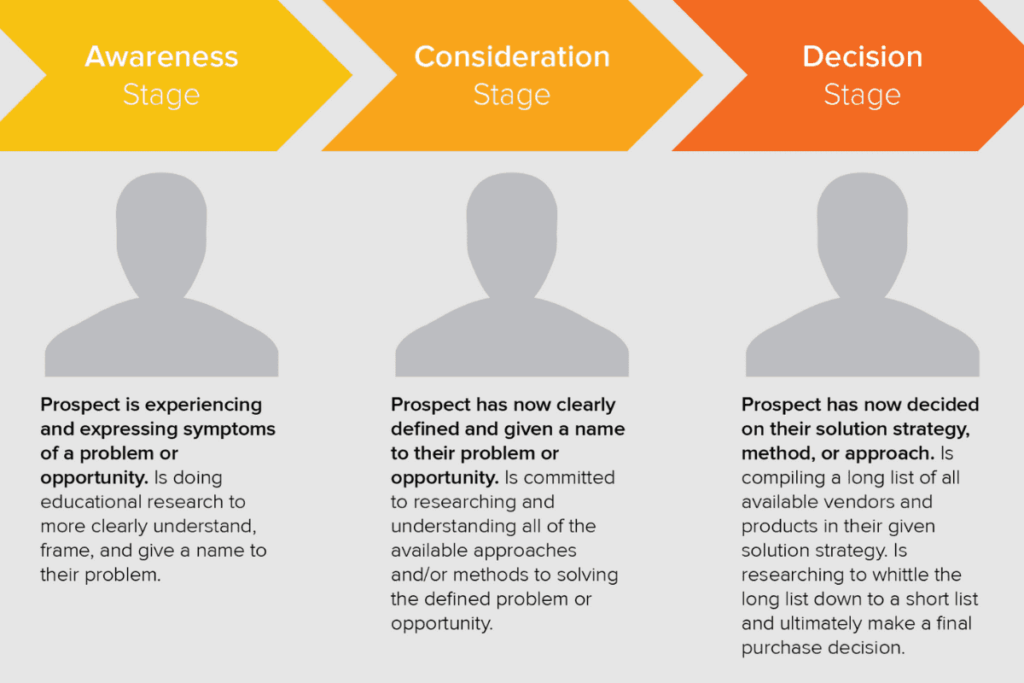
Digital customer journey mapping has several advantages, such as:
In today’s world, the customer journey needs to meet the demands of multiple channels.
To do this, we need to adopt an “omnichannel” approach which gives equal importance to all stages of the journey.
The objective? To build a “seamless” user experience; one that’s consistent across all channels – whether telephone, social media, or your website.
The time for compartmentalization is over.
Reshaping and optimizing your digital customer journey isn’t a small task. In fact, it can lead to huge changes within your business.
That’s why involving all employees in the process is essential for maintaining consistency and output as you optimize your customer journey.
Feedback from each department is invaluable and will help contribute to the development of a “concrete” path based on reliable data.
Take a product tour Get to grips with Contentsquare fundamentals with this 6 minute product tour.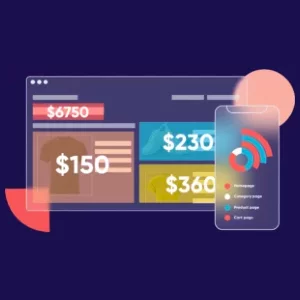
In today’s heavily saturated market, personalization can help you make a difference and stand out amongst the crowd.
Nevertheless, personalizing your journey effectively requires excellent knowledge of your business goals and a clear understanding of your target personas.
With these things covered, you’ll be able to determine the content to display on your site or application according to age, location, areas of interest, previous searches, or purchases…
Contentsquare’s customer journey analysis tools can help you do this.
We wouldn’t want to finish this article without sharing some examples of digital customer journeys that are as different as they are inspiring.
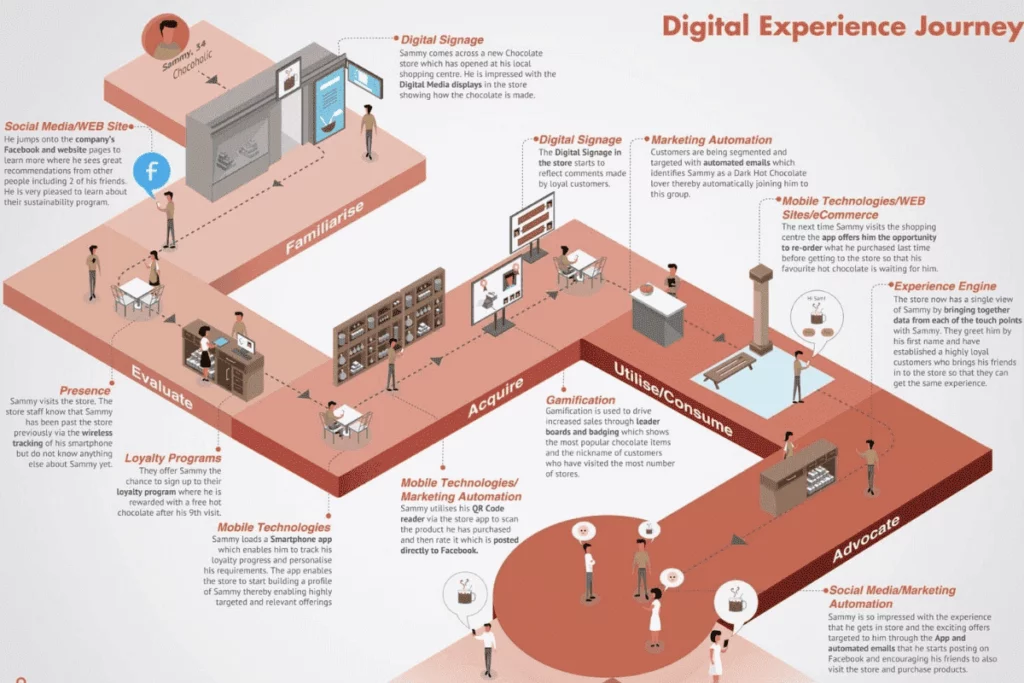
This customer journey shows clearly how a chocolate brand might create new followers; from discovering products by chance in the street to transforming the customer into a true ambassador.
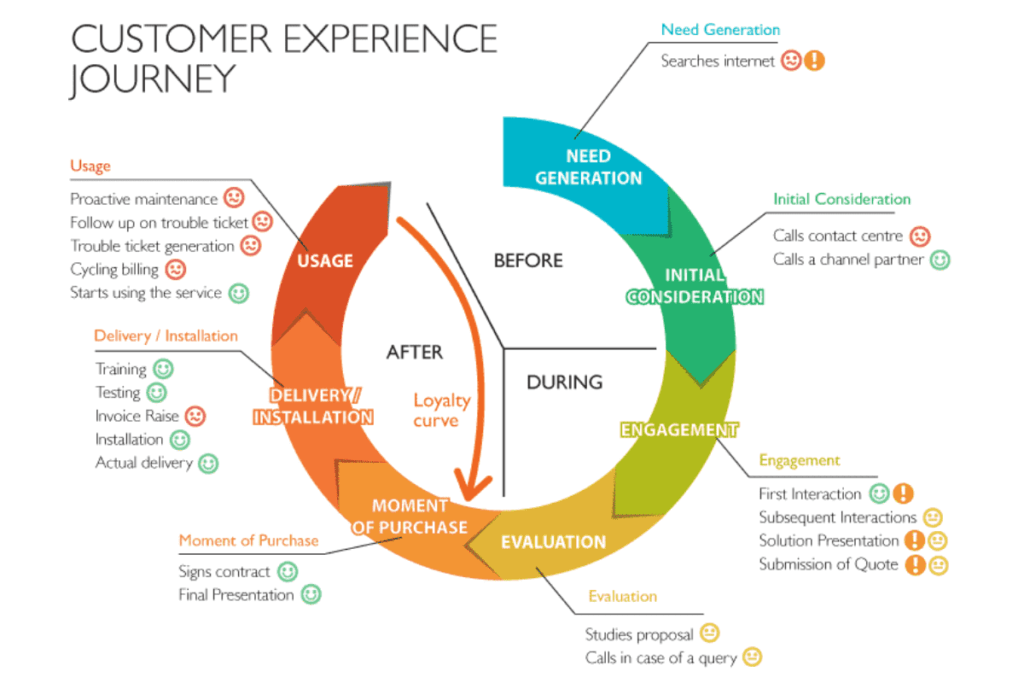
This second example from UXFirm has a different objective and emphasizes the experience of the customer at each stage – from awareness to purchase.
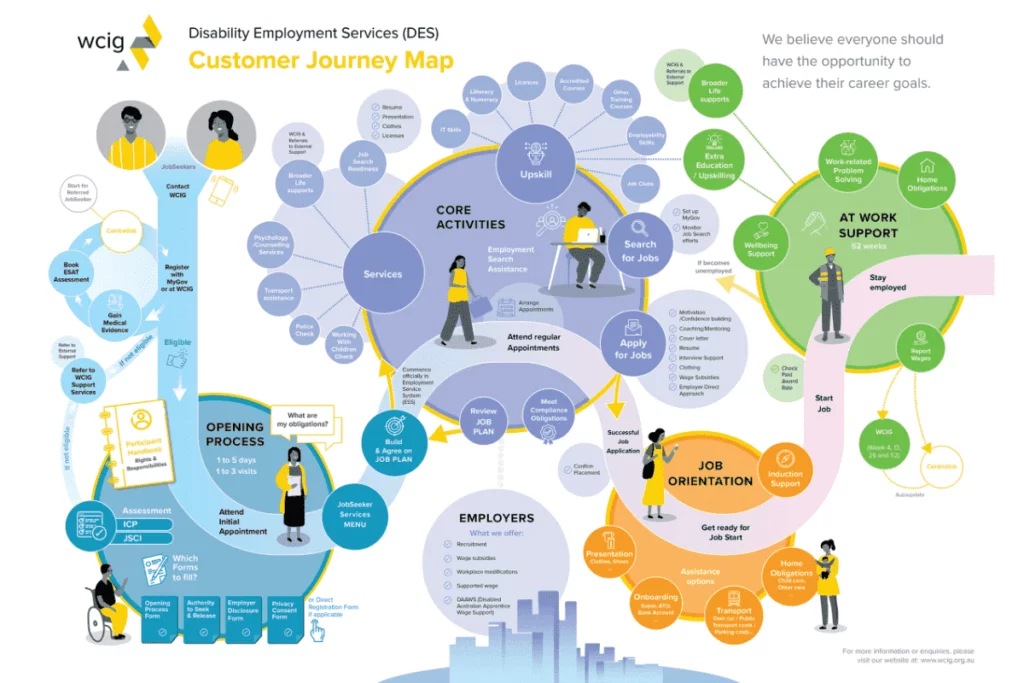
The third example describes in detail each stage and obstacle faced by those with disabilities in a working environment. A very complicated (but enlightening) example of a customer journey!

Finally, let’s conclude with an example of a digital customer journey by Zendesk that clearly shows the dynamics of customer acquisition, retention, and loss.